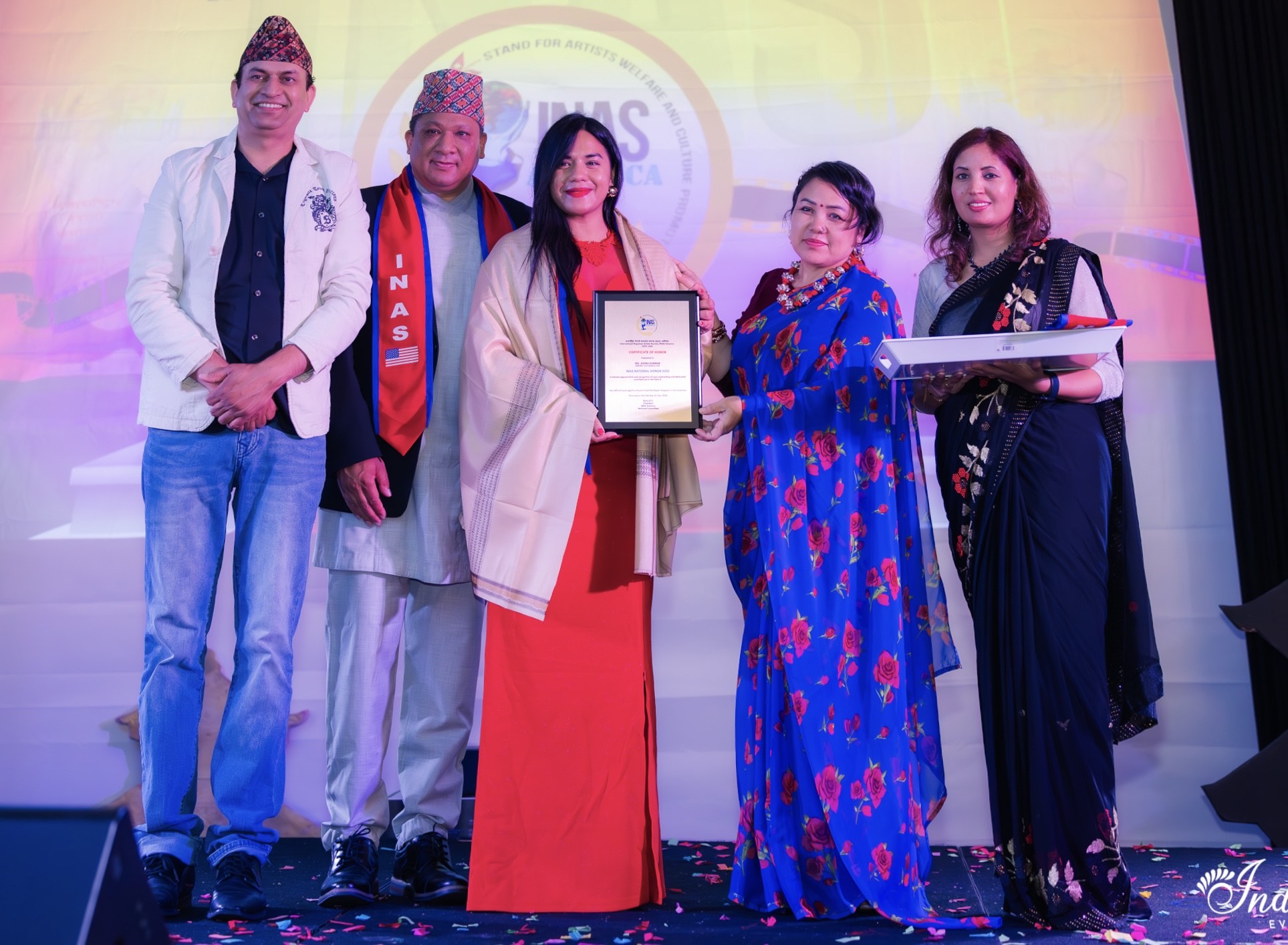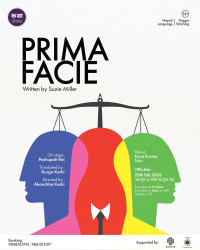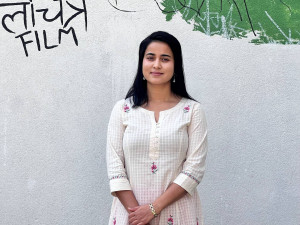Culture & Lifestyle
What happens when science meets songwriting? Ask Ashra Kunwar
A PhD researcher and pop singer, Kunwar believes music can do more than entertain—it can educate and empower.
Sanskriti Pokharel
Ashra Kunwar is a Nepali singer, environmental researcher, and activist who combines art, science, and advocacy in her work. She has been performing since 2010 and leads a band called Ashra & The Parables. Currently, she is pursuing a PhD at the University of Florida, focusing on human-wildlife conflict and applying General Strain Theory to big cats in Nepal. Alongside her studies, Kunwar has organised musical tours in several countries, using her voice to entertain and raise awareness about environmental and social justice issues.
Recently, Kunwar was awarded the Top Shop Kathmandu 8848 Himalayan Music & Film Awards in May 2025 for Best Pop Song for ‘Itihaas Timro Mero’ in New York and the National Capital Award’s Best Pop Duet in April 2025 for the same song in Nepal. She also received the International Nepalese Artists Society (INAS) National Honour Award in Baltimore, Maryland.
She is also the founder of the Kunwar Foundation, which combines art and activism, and has taught over 250 students musical theory at Nepal Music House. In this conversation with the Post’s Sanskriti Pokharel, Kunwar explains how music can be a powerful medium for change in classrooms, concerts, or conservation campaigns.
You’ve been performing since 2010, using music as an art form and a tool for awareness. What first drew you to singing and songwriting?
I started singing in school choirs and was also a house captain, which sparked my passion for leadership. I loved reading books and participating in elocution contests. These experiences encouraged me to engage with important issues, especially during my A-levels, when I became more aware of climate change and its challenges.
But alongside my academic work, I strongly believe in the power of art and activism. For example, I created a progressive rock song called ‘Bodhibrikshya’ about climate change. I aim to blend my research and music to promote activism.
Many musicians use their voice for love, heartbreak, or protest. For you, how does music intersect with activism and environmental awareness?
Music is also a powerful way to inspire change and raise awareness. My song ‘Aabash’ is dedicated to my late brother. It carries a message that life is full of uncertainties, and when we lose someone dear, instead of falling back, we should dedicate our lives to a bigger purpose. Contributing something meaningful in their name is the greatest tribute we can give.
Similarly, ‘Bodhibrikshya’ speaks about the destruction caused by deforestation and environmental crises, but also carries a message of hope that change must start with us. For me, music is a parable, Ashra and the Parables means Ashra and the stories: a story I like to tell. I also create love songs like ‘Itihaas Timro Mero’ and ‘Fearless’.

You’ve taught music to many students through Nepal Music House. How has teaching shaped your creative process?
I started teaching music during Covid–19 while preparing to begin my PhD. Soon, I had students from Nepal, the UK, and the US eager to learn theory and practical skills. I managed my time by teaching early mornings around 5 am.
Teaching isn’t solely about technique; it’s also about enabling passionate students to connect with the music, enhance their articulation, and develop their musical hearing abilities. This process has made me a better musician and kept me inspired. I’m grateful to continue teaching online and connect with students worldwide.
What resilience strategies have stood out to you when working with women in climate-vulnerable areas? And is your current PhD research at the University of Florida related to this work?
After winning the Best Impact Project of Nepal in 2016 by EmpowerHER, I dedicated myself to working with women’s groups in Khokana and Sunakhothi, training them to survive and thrive. What stood out was witnessing their transformation as they gained knowledge and skills like vermicomposting and growing water-saving vegetables that gave them independence and hope. More than farming, it was about planting seeds of resilience, strength, and self-reliance in communities that face daily challenges.
With the support of the United States Youth Council, I created the Krishi Guru app to extend this empowerment beyond geography, giving these women tools in the Nepali language at their fingertips.
My PhD research explores the complex realities of human-wildlife conflict in Nepal through the lens of general strain theory. Though my studies take me far, my heart and work remain rooted in Nepal, where every lesson learned and challenge faced fuels my commitment to creating real change.
How does being both a researcher and a musician challenge or enhance your sense of identity?
Being a researcher and a musician enriches my sense of identity in ways I never expected. Research grounds me in understanding real-world problems, especially in environmental science, while music allows me to express those experiences emotionally and creatively. Balancing the two can be challenging, switching between the analytical mindset and artistic flow, but it also makes me whole.
Art and activism are my ultimate goals. Together, they empower me to tell stories that matter and drive change.
Looking ahead, how do you hope to combine your musical, academic, and activist work to leave a lasting impact?
By weaving together art and science, I aim to spark a movement that doesn’t just raise awareness but compels action. I strive for this legacy far greater than music or academic papers; it’s about empowering communities, safeguarding our planet, and inspiring generations to carry this torch forward with passion and unwavering purpose. I want to be remembered as someone who bridged art and activism—an artist-activist whose work changed the conversation and moved the world, that’s my little dream.
What does it mean for you to be recognised on both International and National stages—winning two awards for your song ‘Itihaas Timro Mero’ in the US and Nepal?
It’s a moment I will cherish forever because this is a personal song, dedicated to my father and mother and their love story. When my mother received the award on my behalf, it became more than just an honour; it became an emotional milestone.
For me, it was a full-circle moment. I also received the INAS National Honor Award in Baltimore, Maryland. These awards motivate me to push my music and research boundaries, allowing me to contribute more meaningfully to my community and Nepal’s future. I am humbled, grateful, and more driven than ever to continue creating and performing.




 20.12°C Kathmandu
20.12°C Kathmandu















